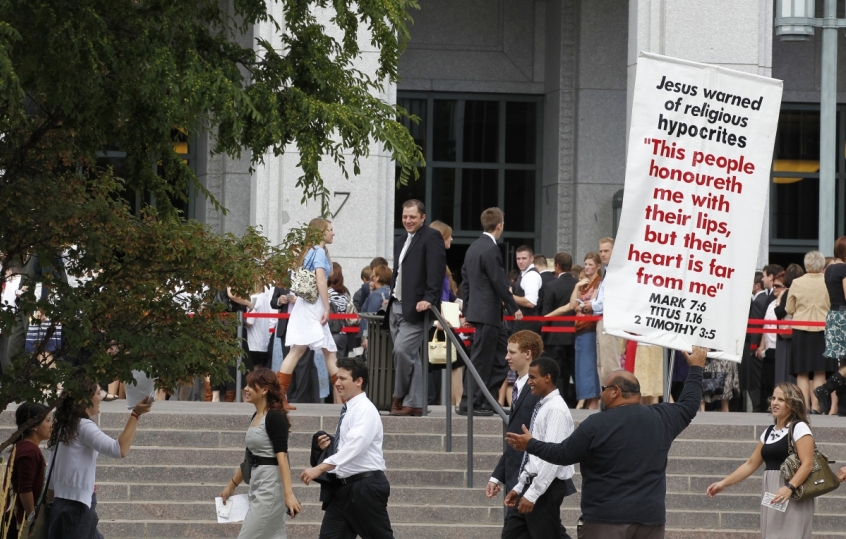I wonder what your reaction is when you pass a street preacher. Shy away? Stop and listen? Sidle over for a discussion? Explain to your friends that this isn't 'your kind of Christianity'?
Some have been influenced by the response of Rob Bell, one-time evangelical megastar, who criticised street preaching in his Nooma video Bullhorn Guy. Bell contended that such an approach was more likely to put people off the gospel than win them to it, and suggested that Christianity was about loving the neighbour rather than preaching at them.

Just last week, in response to the arrest of two street preachers in Bristol, the Archdeacon of Oxford ackowledged that some street preaching is intended to incite religious hatred and said this need 'to be dealt with by the law'.
He went on to clarify: 'Most street preaching is fine and most street preachers are not out to incite hate.'
Whatever one thinks of the effectiveness of street preaching, calling for a ban on it is surely wrong-headed. As a helpful guide produced by the Lawyers Christian Fellowship and the Evangelical Alliance points out, sharing the gospel in public is a well-established freedom in the UK and something that should be protected.
Street preaching can claim deep biblical roots, with the Old Testament prophets providing precedents for the practice. The prophets were typically called to announce God's Word to an unbelieving nation, and – like Jeremiah – were often met with hostility and persecution (Jeremiah 1:14-19).
Standing in the line of the prophets – but far more than a prophet – Jesus proclaimed the kingdom of God to all who would hear. As well as preaching in synagogues (Mark 1:21), Jesus announced the good news in homes (Mark 2:1-2) and the countryside (Mark 4:1). As Jesus' parable of the great dinner indicates, the message of the kingdom was to go out to the 'streets and lanes,' even to those who might make unexpected guests at the banquet of the king (Luke 14:15-24).
The earliest Christian missionaries were also convinced that the good news of Jesus should be proclaimed in the entire world. While the apostles typically begin preaching within the synagogues, they also preached before crowds in places like Samaria (Acts 4:5-6), Lystra (Acts 14:8-18), and Athens (Acts 17:22). Preaching took place in streets and marketplaces as well as in religious buildings.
As well as the biblical precedents for street preaching, there are historical examples too. Forms of street preaching – or proclaiming the gospel in public spaces – feature throughout the history of the Church. Whether the Franciscans of the t13<sup>th century, the Methodists of the 18th or the Salvationists of the 19th, Christians have always sought to proclaim the gospel in public..
In today's context, street preachers offer an implicit protest to the exclusion of Christianity from the public sphere. While town centres promote consumerism and leisure, street preachers remind us that Christ claims all of life. Our public spaces should be open to an alternative message than that things make us happy, even if such a message might not always be welcome.
Can street preachers be embarrassing? For sure. Can they do more harm than good? At times, perhaps.
And yet the preached Word that seems foolish to the world is a Word that has the power to save, a Word that echoes God's saving power in the foolish cross of Christ (1 Cor 1:18-25). Whether or not we're comfortable with street preaching ourselves, its abolition would be a loss for us all.
Ed Mackenzie works in discipleship development and is the co-author of Together with God: An Introduction to Family Worship (www.togetherwithGod.org.uk).













